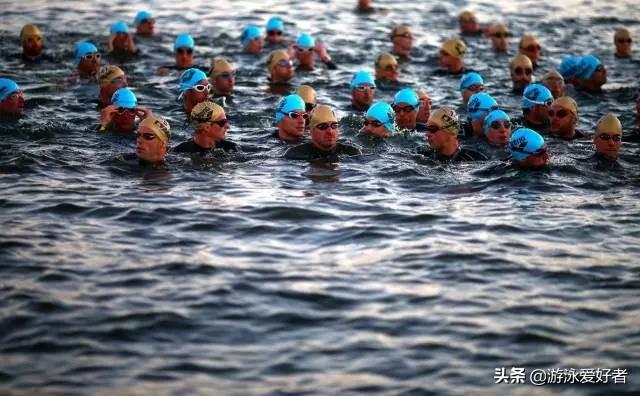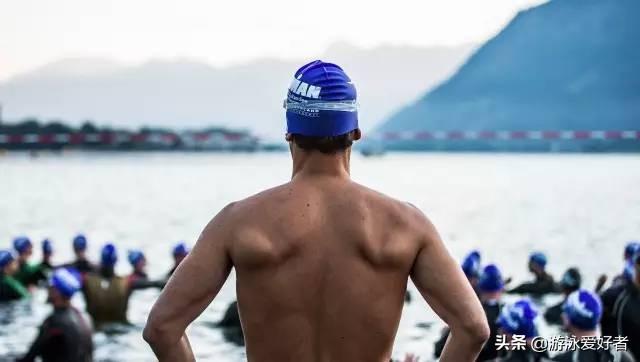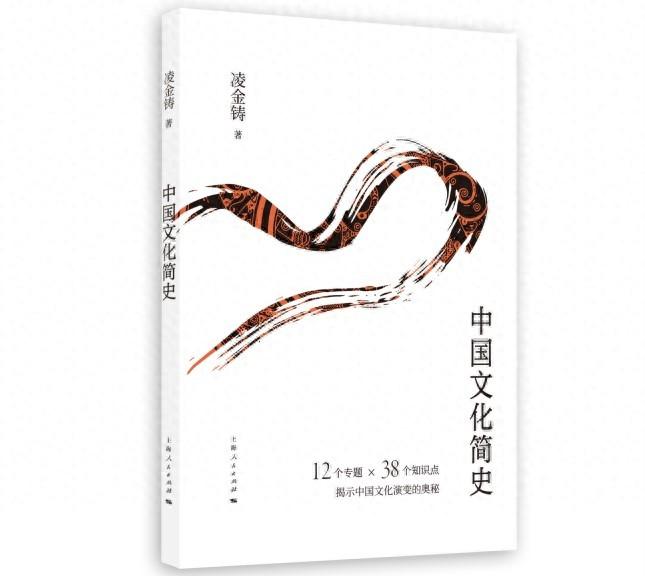
Drawing on the latest achievements in China’s cultural history research and archaeology, this book has 12 special topics, starting with the relationship between technology, system and culture, and through in-depth and detailed analysis of 38 knowledge points, it tries to explore the wonderful chapters and internal laws of China’s culture in the past 3,000 years. It is a brief history of China culture with large knowledge coverage, conciseness, easy understanding and illustrations.
Elegant and popular culture in Song Dynasty
In Song Dynasty, the direction of China culture changed greatly. From the perspective of cultural types, urban culture has emerged, and there has been a situation in which scholar-bureaucrat culture and citizen culture coexist, and elegant and popular cultures develop in parallel; From the perspective of cultural style, it is completely different from the previous Tang culture. The Tang culture is an open culture with relatively extensive, extroverted and strong colors, showing an extroversion, roughness and boldness, while the Song culture is an introverted culture with relatively closed, introverted and elegant colors, showing an introspective, refined and elegant feature.
The scholar-bureaucrat culture in the Song Dynasty showed a refined and inward-looking style, as well as the spiritual value and moral ideal of Neo-Confucianism, which was very elegant. Scholar-officials in the Song Dynasty were good at intellectual introspection, and were subtle in mind. This concept runs through many art categories such as Song Ci, Song Shu, Song Painting, Song Wen, Porcelain and Garden Construction.
Song Shu respected the style of calligraphy in Wei and Jin Dynasties, pursued individuality, advocated valuing meaning, and respected intentional impossibility. The so-called "Shang Yi" means advocating the artistic conception and interest of calligraphy and expressing calligraphers’ distinctive personality and elegance. Calligraphers in Song Dynasty, "learning from predecessors, creating new meanings", are represented by Su Shi, Huang, Mi and Cai’s "Song Sijia", namely Su Shi, Huang Tingjian, Mi Fei and Cai Xiang, and there is also an emperor, namely Song Huizong Zhao Ji, who created the "thin gold body". Their calligraphy, seemingly easy-going and brilliant, is full of brushwork, elegance and kindness.
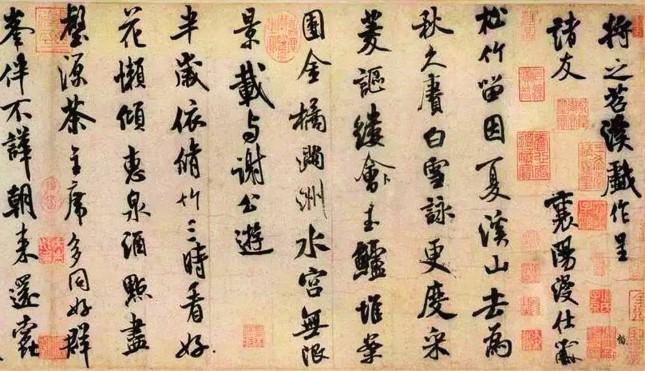
Song paintings are also elegant. Su Dongpo advocates that poetry and calligraphy should be integrated into painting, and painting should be used to express the interest of literati. Therefore, Song paintings are full of natural and unrestrained spirit and elegant, delicate, gentle and quiet beauty. Song Wen and Shu Xu are gentle and feminine. Song porcelain, slightly rich and rich, is simple and elegant, and attaches great importance to ideology. Private gardens built in the Song Dynasty, such as Master Wang Garden and Canglang Pavilion in Suzhou, are also exquisite and poetic, giving people a sense of quietness, profundity and gentleness. The tea drinking, collection and clothing of the scholar-officials all show elegant and meticulous style. Scholars drink tea, "the victory of the first product, the wonderful cooking, all of which are salty." Even the clothes, the literati also love the simple and delicate features.
It is the Song Ci that best reflects the exquisite and elegant culture of the literati. Ci originated from street ballads and tended to be refined because of the intervention of literati. Different from poems with broad meanings and images of all beings, the words are small and narrow, ingenious and new. It focuses on the harmony between temperament and language, creating ethereal atmosphere, taking a secluded path, expressing sadness and melancholy, which is extremely delicate and exquisite. Although Su Dongpo and Xin Qiji are the representatives of the bold style of ci, the mainstream of ci is always graceful and feminine, which reflects the mood and mood of literati in Song Dynasty and Tang Dynasty.
Song ci inherited the late Tang dynasty and five pronouns. The five generations of literati ci created by Wen Tingyun in the late Tang Dynasty laid the foundation for the vigorous development of Song ci. The Huajian School, headed by him, mostly uses gorgeous words and graceful expressions to write about women’s beauty and clothing, as well as parting from sorrow and hate. For example, Wen Tingyun’s "More Leaky": "Jade incense, red wax tears, partial to Qiu Si in the painting hall. The eyebrows are thin and thin, the clouds are residual, and the night is long and the pillow is cold. Sycamore tree, it’s raining in the middle of the night, and it’s bitter not to leave love. A leaf, a sound, empty steps drop to the light. " Feng Yansi, a five-pronoun who was praised by Wang Guowei as "opening the atmosphere of the Northern Song Dynasty", has a deep and touching work, which has further advanced the graceful ci style since the late Tang Dynasty. For example, "Que Tiaozhi" writes loneliness and melancholy: "Who can abandon leisure for a long time?" Every spring comes, melancholy remains the same. I often get sick before I spend the day, but I dare to say that my face is thin in the mirror. Willow on the Qingwu embankment by the river. To ask new worries, what happens every year. The independent small bridge is full of sleeves, and the Pinglin Crescent people return. "
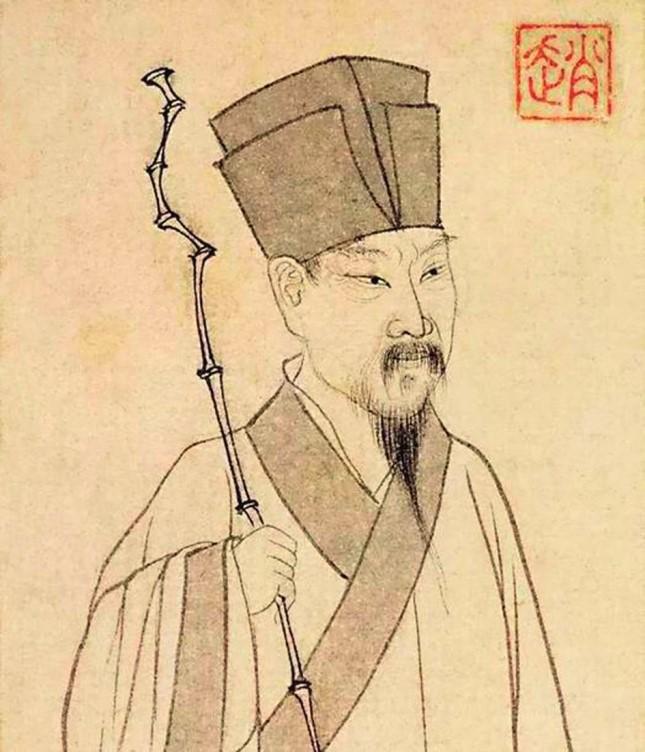
Poets in Song Dynasty made a series of innovations in style, content, language and rhythm, which pushed this popular art form to a new level.
First of all, carry forward the graceful and restrained style and create a bold and unconstrained style of ci. In the early years of the Northern Song Dynasty, Yan Shu, Song Qi, Fan Zhongyan, Ouyang Xiu and others followed the style of ci poetry in the Southern Tang Dynasty, but Zhang Xian and Liu Yong changed the style of ci poetry into a long and slow word, changed the content from the narrow leisure in always in my heart to the expression of urban life in many aspects, and changed the elegant and implicit style of ci poetry into a hearty exposition. For example, Liu Yong’s "Basheng Ganzhou" expresses the sadness of leaving people, which is desolate and intense: "Sprinkle the rainy days on the river and wash the clear autumn. The bleak frost wind a burst of Tight, the river of mountain river is cold and cheerless, the light of the setting sun shines on the tall building. Everywhere the red flowers withered and withered, all the beautiful scenery gradually fade away. Only the Yangtze river water, speechless east flow. Not the heart to climb far away, overlooking the remote home, the desire to go home is difficult to gather. Sigh for years, why bother stay for a long time. If you want a beautiful woman to dress up, you will miss it a few times, and the sky will return home. I am anxious to know me and lean against the railing. "
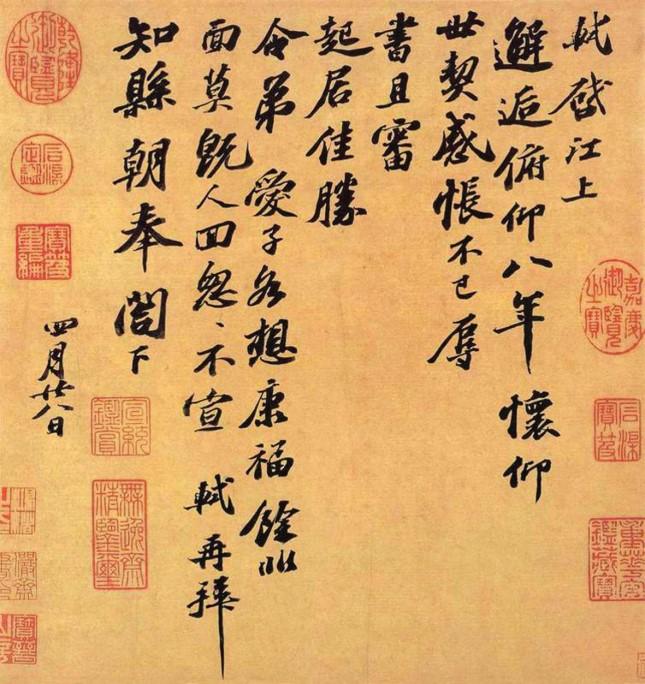
Su Shi’s graceful words use traditional poetry to create artistic conception, with vivid chronicle, emotional harmony and sincere feelings. For example, Jiang Chengzi Yi Mao remembers his dead wife night and night on the twentieth day of the first month: "Ten years of life and death are boundless, so I will never forget it without thinking. Thousands of miles away in a lonely grave, there is nowhere to talk about desolation. Even if you don’t know when you meet, your face is covered with dust and your temples are like frost. At night, I dream of returning home suddenly, and Xiao Xuan window is dressing up. Care for each other without words, only tears thousands of lines It is expected that the heartbroken place will be broken every year, and the moon will be short and loose. "
Su Shi created a bold and unconstrained style of ci while he was graceful and graceful. His "Nian Nujiao Chi Bi Nostalgia", "Shui Diao Ge Tou Bing Chen’s Mid-Autumn Festival Drinking and Being Drunk" is the masterpiece of this style. Contemporary Wang Anshi, Huang Tingjian and others also have bold words. This word style was strongly advocated by Xin Qiji, Lu You and others in the Southern Song Dynasty and fully developed. Zhang Yuangan, Zhang Xiaoxiang, Chen Liang, Liu Guo and Liu Kezhuang are all famous uninhibited poets. Xin Qiji’s uninhibited words are "bold and unrestrained like the wind and rain, bold and heroic like the sea and mountains" (Liu Dajie: History of China Literature (middle volume), Fudan University Press, 2006, p. 188), such as "Yong Yule Jingkou Beigu Pavilion Nostalgia", which writes the hopeless sadness of serving the country: "Throughout the ages, heroes have never found Sun Zhongmou. Dancing in the pavilion and singing in the platform, the wind and rain always blow away the romantic feelings. The setting sun shines on the grassy plain of the grassy tree, where people say it was the place where Emperor Wu of Song had lived. Back then, he led the northern expedition, recover lost ground how powerful! However, Wang Liu yilong’s son, Li Liu yilong, was a great success and rushed the northern expedition, but instead let the northern Wei emperor Wu tuobadao fly south, and return to the north shore of the Yangtze river, and suffered a heavy blow by his opponents. I have been back to the south for forty-three years, and I still remember the war scenes in Yangzhou with the flames of war. Looking back, under the Beaver Temple, there was a crow club drum. Who can ask, Lian Po is old, can he still eat? "
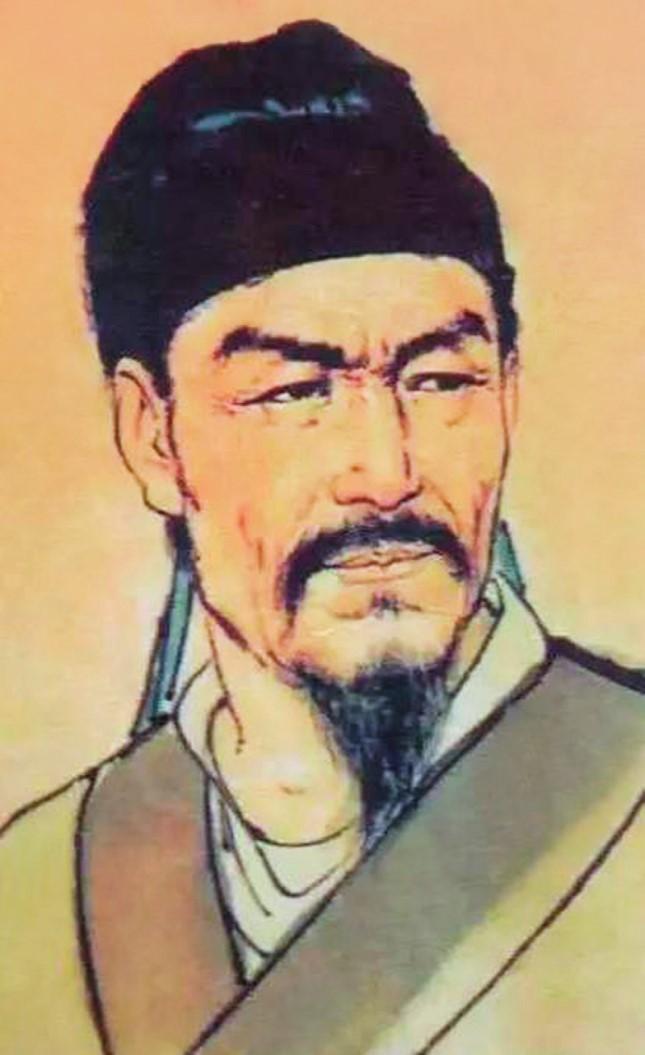
Secondly, popularity and elegance go hand in hand. On the one hand, Liu Yong put folk long tunes and slang into ci, while Su Shi, Xin Qiji and others merged poetry, ci and prose, understood them freely, and wrote them freely. For example, Su Shi’s "Niannujiao Chibi Nostalgia" is as popular and lively as prose: "river of no return, a romantic figure through the ages. To the west of the old base, humanity is: Red Cliff in Zhou Lang, the Three Kingdoms. The steep rock walls, such as the thunder of the waves against the river bank, the waves of spray like to roll up tens of millions of snow. The majestic river shan qi, such as the picture, how many heroic heroes emerge at a time. Thinking back in the days of Zhou Yu’s spring breeze, beautiful beautiful young Joe just married him, his heroic heroic spirit full of. Feather fan nylon scarf, talking and laughing, lost in smoke. I am fugue today in the battlefield, I am feeling the a feeling heart, prematurely born with white hair. Life is like a dream, and one statue is still on the moon. "
On the other hand, Qin Guan, He Zhu, Zhou Bangyan, Li Qingzhao and others made great efforts in elegance to express feminine elegance, slender elegance, Leng Yan elegance and sad elegance. For example, Qin Guan’s "Jiangchengzi" wrote that he hates farewell in late spring: "When will Shao Hua not stay for teenagers and hate you?" When the flying catkins fall out of the flowers, they climb the stairs. It’ s like a spring river is full of tears, endless, and many sorrows. " For example, Li Qingzhao’s "Like a Dream" wrote Xichun: "Last night, it rained suddenly, and a deep sleep did not consume the wine. Ask the shutter man, but the Chinese flowering crabapple remains the same. Do you know, do you know? It should be green, fat and thin. " For example, He Zhu’s "The Jade Case" wrote about his leisure in late spring: "Ling Bo didn’t cross the Hengtang Road, but he watched Fang Chen go. Who is the degree of Jin Sehua? On the platform, there are flower pavilions and windows, and only Chunzhi is there. Fei Yun, Ran Ran, at dusk, painted a new topic, heartbroken sentence. If you ask how much leisure is there? Yichuan tobacco, full of wind, plum yellow rain. "
Finally, meter and free expression are both open. Su Shi and others expressed freely, and extended the realm of Ci to the extent of "heartless, there is nothing to say". However, they were criticized by the people of that time for being out of tune and unable to sing. Therefore, Zhou Bangyan and others paid attention to meter and pay attention to "putting words into the law". Zhou Bangyan is proficient in music, and devoted himself to the melting and casting of language and music. His words and rhythms have strict statutes, forming an exquisite and elegant style. This style and tradition were inherited by Jiang Kui, Wu Wenying, Shi Dazu and others in the Southern Song Dynasty, and the school of metrical words prevailed for a while. For example, Zhou Bangyan’s "Jie Lianhuan’s Resentment Without Trust" describes the infatuation with resentment without trust: "Resentment without trust. The lover is cut off, and the news is distant. With skillful hands, you can Jie Lianhuan, like the wind dispersing rain, and the fog is light and the clouds are thin. The swallow house is empty, with a dark dust lock and a string rope bed. Want to move roots and change leaves. It’s all old times, planting red medicine by hand. Du Ruo was born in Tingzhou. The boat bends along the shore, and people are in the corner of the sky. Remember, listen to the book on the same day, and talk nonsense until it is always burned. Shuiyi Spring Festival, hope to send me, Jiangnan plum calyx. Fight for this life, drink for flowers, and cry for Iraq. "
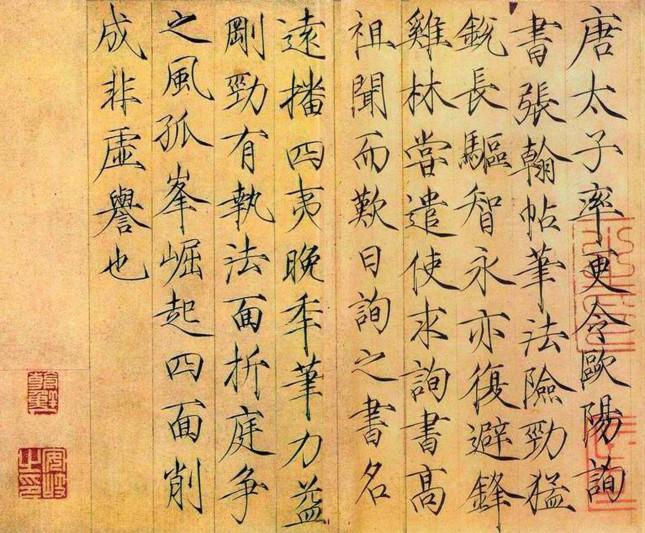
Corresponding to the exquisite upper-class elegant culture, another cultural form is on the scene, which is the vulgar and vivid market culture that grew up in the bustling market life and crowded tile house. "Market" refers to the place where commodities are traded. There are many wells in trading places for people and animals to drink, so it is called a market. In the Northern Song Dynasty, the urban economy was prosperous, shops were opened everywhere, and night markets appeared. As a result, a large number of citizens have been born, and domestic trade centers such as the capital of song dynasty and Chengdu and international trade cities such as Hangzhou, Guangzhou and Quanzhou have emerged. The citizen class grew accordingly.
Citizens seldom care about the country and the people like scholar-officials, nor do they have the grace and leisure like scholar-officials, and they have no intention of pursuing poetic and elegant tastes. Instead, they are addicted to art forms that can directly and enthusiastically satisfy their sensory enjoyment. To meet the needs of the citizens’ class, some popular art forms such as Qu Zi, Jing Gong Diao, zaju, acrobatics and storytelling have emerged.
Cities not only accumulate wealth, but also gather humanities. The "talk" about history and human stories has flourished since the middle Tang Dynasty, and it entered the "golden age" with guilds in the Southern Song Dynasty. The text recording "speech" is called "story book", which is the ancestor of later vernacular novels. A drama called "Song Zaju" was performed in Washe Goulan and commercialized. South Opera, which originated in Wenzhou, corresponds to the south and north of Zaju. In addition, there are burlesque, puppet shows, shadow plays and so on, all of which can find their own audience among the citizens.
The so-called Goulan tile house, the fixed commodity trading and entertainment venue is called tile, tile room or tile house, and the performance venue surrounded by railings in Vacherie is called Goulan. There is a music shed in Goulan for professional artists to perform, and all kinds of cultural programs are performed in Goulan, such as zaju, acrobatics, storytelling, story telling, shadow play, puppet show, scattered music and Qing palace. Say, sing, fight, fight, blow, pull, play and sing everything. Outside the Goulan, the audience gathered, loudly responded, and it was very lively. Cheng Qianfan and Wu Xinlei believe that a prominent feature of the commercialization of Ci-poetry in the Song Dynasty is that "emperors, bureaucrats, scholars and businessmen, from the capital to the local, from the court to the people, can invest to hire musicians to perform at any time". (Cheng Qianfan and Wu Xinlei: Literature History of the Song Dynasty, Shanghai Ancient Books Publishing House, 1991, p. 678)
This kind of vulgar and enthusiastic street culture was very popular in the Song Dynasty. China culture has never connected the creators and appreciators of art so closely as in the Song Dynasty. The rise of this market culture is a historic turning point of China culture: poetry, the main art category in traditional culture, has gradually withdrawn, while opera and novels, a new art form, have moved to the center of the cultural stage.









